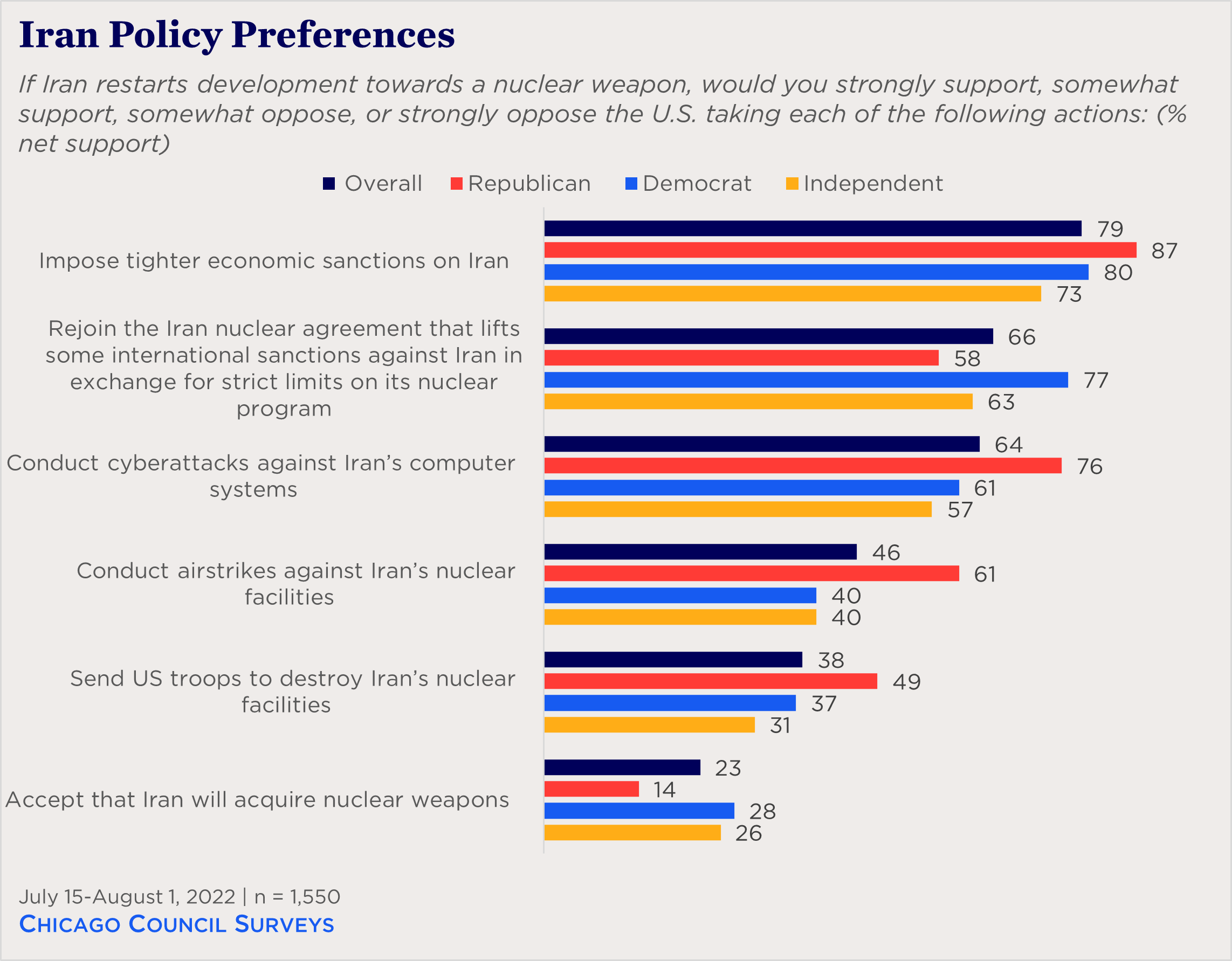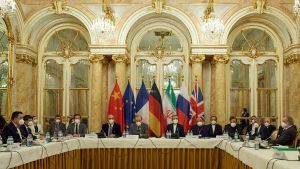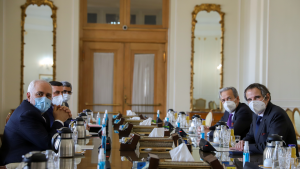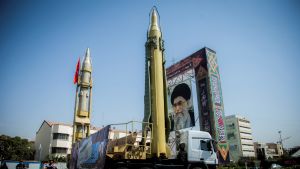In the event of Iran developing nuclear weapons, the US public wants to tighten economic sanctions, and most support a return to the JCPOA.
Negotiations between Iran and the United States to return to the 2015 Joint Comprehensive Plan of Action (JCPOA) agreement—in which Iran agreed to significant restrictions on its nuclear program in exchange for sanctions relief—have continued in fits and starts for 17 months. While hurdles in the process still remain, Iran recently dropped two nonstarters for the United States from their original position, potentially paving the way toward a new agreement. Despite their decreased sense of concern about Iran’s nuclear program, the American public is still willing to take significant steps to prevent Iran from developing nuclear weapon, though a majority reject using military options.

Key Findings
- If Tehran restarts development of a nuclear weapon, majorities of Americans would support tightening US economic and diplomatic sanctions (79%) and conducting cyberattacks (64%).
- A majority reject using force to stop Iran’s nuclear development, although the percentages saying they would support air strikes on Iranian nuclear facilities (46%) and the use of US troops (38%) are significant.
- Six in 10 (59%)—including 73 percent of Democrats, 61 percent of Independents and 41 percent of Republicans—would support returning to the deal rather than staying out and risking Iran developing a nuclear weapon.
- Just over half of Americans consider Iran’s nuclear program a critical threat to the United States (53%).




Methodology
This analysis is based on data from the 2022 Chicago Council Survey of the American public on foreign policy, a project of the Lester Crown Center on US Foreign Policy. The 2022 Chicago Council Survey was conducted July 15–August 1, 2022, by Ipsos using its large-scale nationwide online research panel, KnowledgePanel, in both English and Spanish among a weighted national sample of 3,106 adults 18 or older living in all 50 US states and the District of Columbia. The margin of sampling error for the full sample is +/- 1.8 percentage points. The margin of error is higher for partisan subgroups or for partial-sample items.
Partisan identification is based on how respondents answered a standard partisan self-identification question: “Generally speaking, do you think of yourself as a Republican, a Democrat, an Independent, or what?”
The 2022 Chicago Council Survey is made possible by the generous support of the Crown family and the Korea Foundation.

Related Content
 Public Opinion
Public Opinion
While the public would prefer diplomacy with Iran, they are not taking more aggressive options off the table.
 Public Opinion
Public Opinion
A joint Council and IranPoll survey shows that although Iranian and American public support for the Joint Comprehensive Plan of Action has waned over time, there is still sizable backing for it in both countries.
 US Foreign Policy
US Foreign Policy
The United States' strategy towards Iran must include more than just returning to the Iran nuclear agreement, our Deep Dish guests argue.

